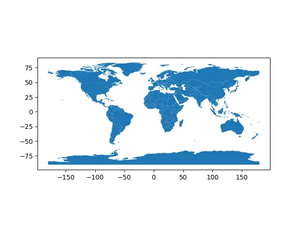Understanding the Error
Encountering a TypeError: SparseArray does not support item assignment via setitem in Pandas can be a hurdle, especially for those dealing with sparse data structures to optimize memory usage. The error typically occurs when you try to assign a value to a specific position in a SparseArray directly. This guide will explore reasons behind this error and provide solutions to circumvent or resolve it efficiently.
More about Sparse Data Structures
Sparse data structures in Pandas, such as SparseArray, are designed for memory efficiency when handling data that contains a significant amount of missing or fill values. However, these data structures have certain limitations, including restrictions on direct item assignment, which is the primary cause of the error in question.
Solution 1: Convert to Dense and Assign
One straightforward method to overcome this error is converting your SparseArray to a dense format, performing the item assignment, and then, if necessary, converting it back to sparse format.
- Step 1: Convert the SparseArray to a dense array.
- Step 2: Perform the item assignment on the dense array.
- Step 3: Convert the dense array back to a SparseArray if needed.
Example:
import pandas as pd
import numpy as np
# Assuming `sparse_series` is a Pandas Series with a SparseArray
sparse_series_dense = sparse_series.sparse.to_dense()
sparse_series_dense[0] = 100 # Assigning new value
# Convert back to SparseArray if needed
sparse_series = pd.Series(pd.arrays.SparseArray(sparse_series_dense))
# Output
print(sparse_series.head())
Notes: While this solution is straightforward, converting to dense and back to sparse can be memory-intensive, especially for very large datasets. This should be considered when dealing with limited system resources.
Solution 2: Use Sparse Accessor for Direct Assignment
Another solution involves utilizing the sparse accessor .sparse provided by Pandas for directly assigning values without converting to a dense format. This method supports updating the entire array or slices but not individual item assignments. What you need to do is just using the .sparse accessor to directly assign values to the SparseArray.
Example:
import pandas as pd
import numpy as np
# Assuming `sparse_series` is a Pandas Series with a SparseArray
sparse_series.sparse[0:2] = 100 # Attempting direct assignment (will raise an error)
# Correct usage for updating slices
sparse_series[:] = 100 # Updates all values
Notes: It’s important to note that while this solution avoids the need for conversion, it has limitations on granularity. You can’t use it for assigning a value to a specific index but rather for assigning values to slices or the entire array.
Final Thoughts
Handling SparseArray item assignment errors in Pandas can be tricky but understanding the limitations and workarounds makes it manageable. Both converting to dense before assignment and using the .sparse accessor come with their own sets of considerations. Evaluate your specific needs and system resources to choose the best approach.
